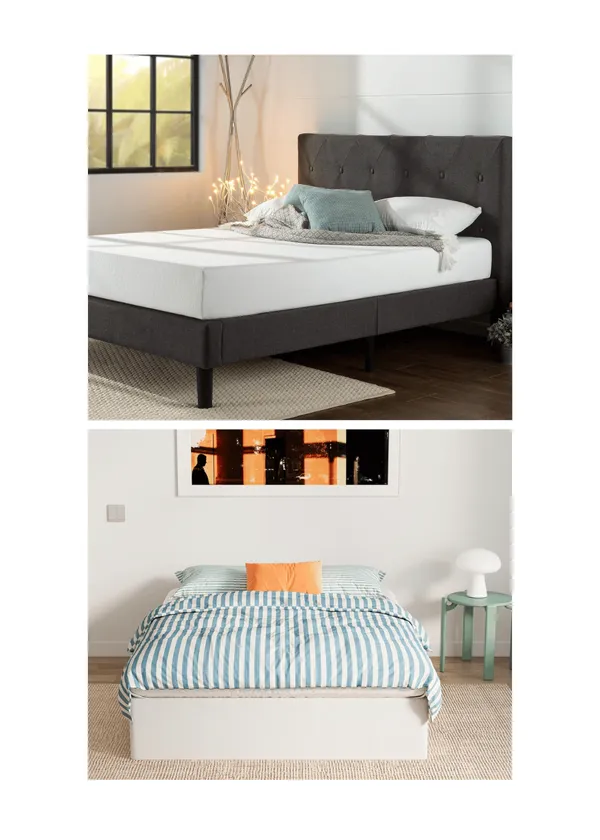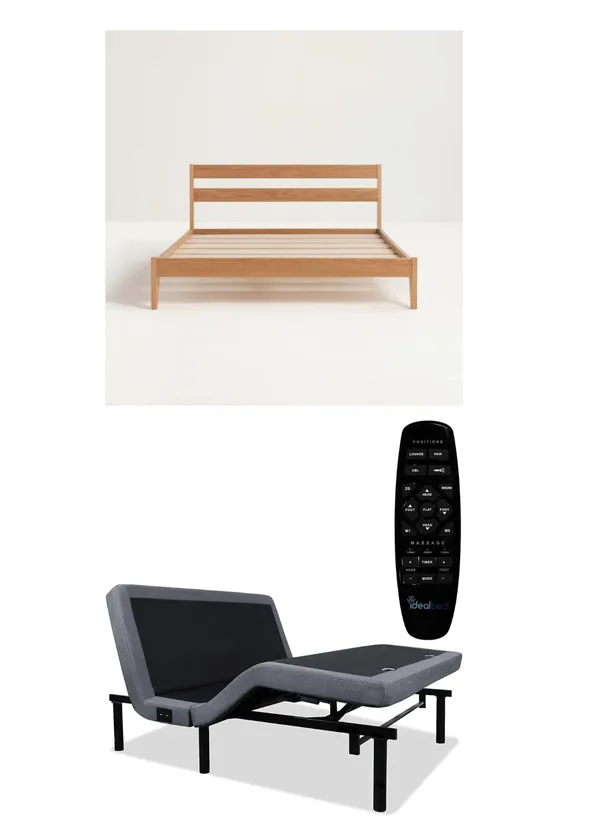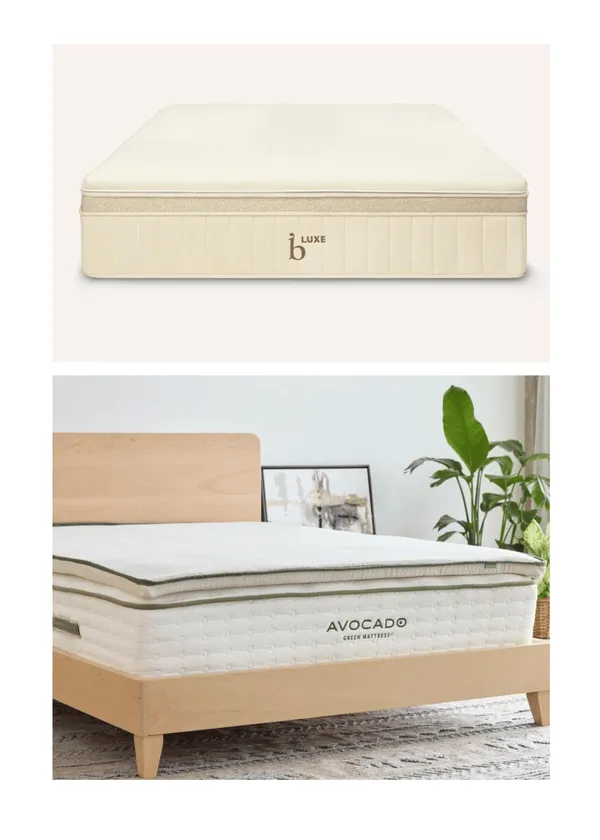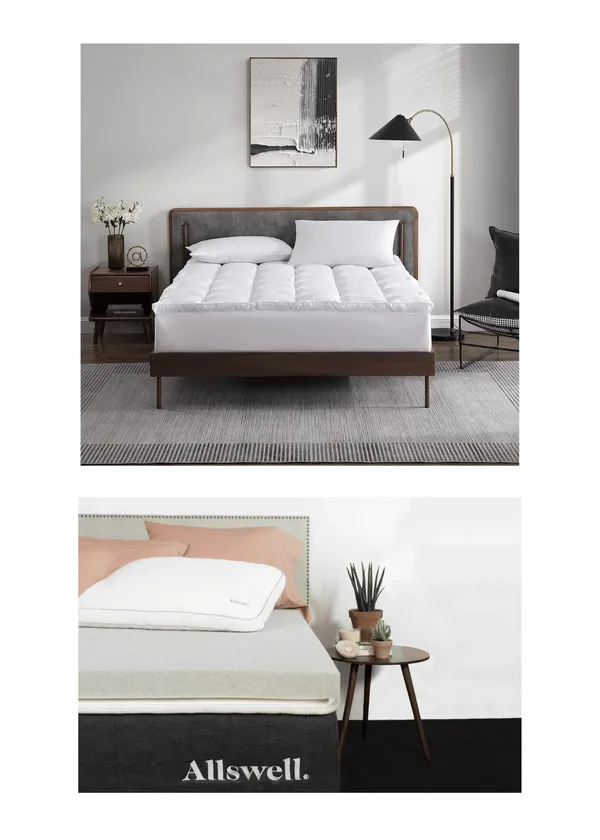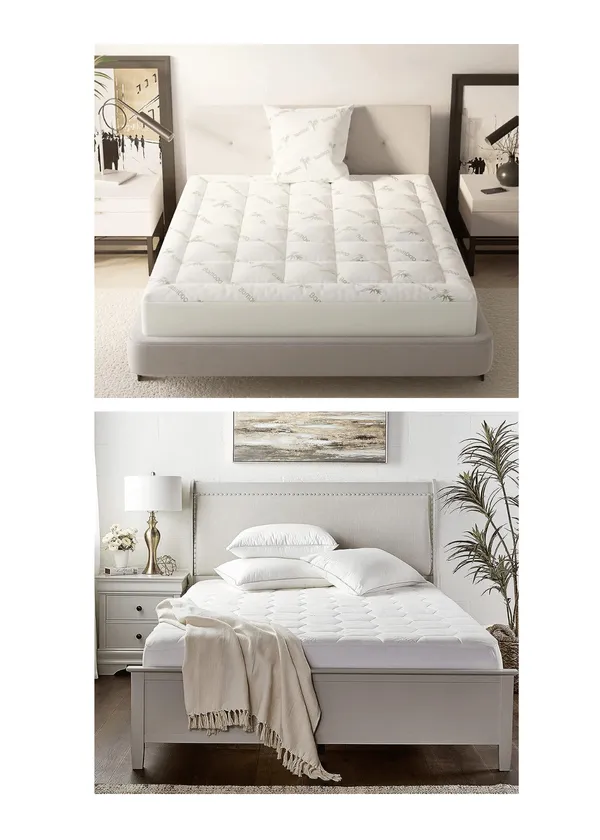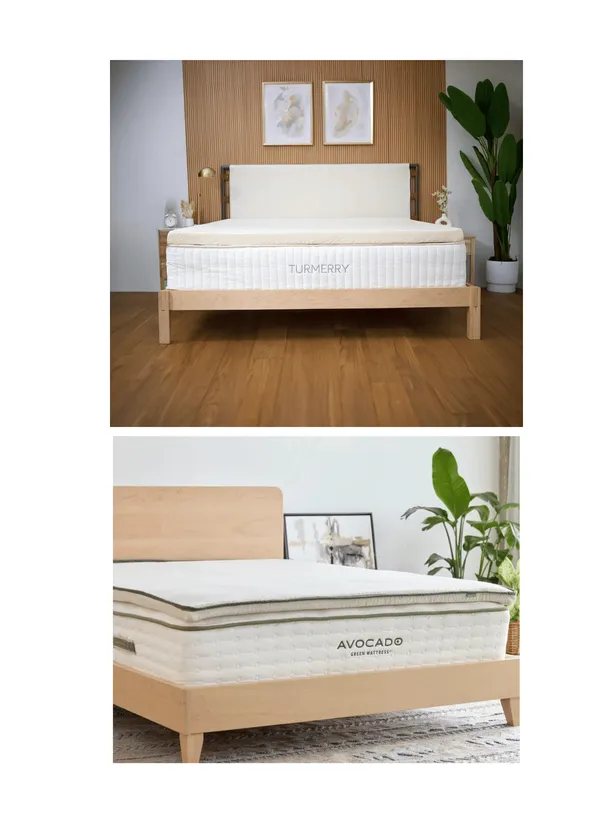(Last Updated: 05/24/2024)
Have you ever tossed and turned at night, wondering if a better mattress would solve your sleep woes?
The right mattress can be a game-changer for quality sleep.
However, it can be daunting to decipher how much you should spend on a mattress to get that perfect night's rest.
The cost of a mattress often reflects its durability, comfort, and features. It's not just about the price tag—it's about value, lifespan, and health.
Please dive into the mattress cost reviews with this guide to understand why price matters when choosing a mattress and the factors determining its cost. Your dream sleep awaits!
Understanding Mattress Pricing

The average price for a new mattress depends on its quality and features. Consider mattress size and type to understand how much a good mattress costs.
The Basics of Mattress Pricing
Every mattress has a cost, influenced by various factors, from raw materials to the brand's reputation.
Researching mattress reviews helps determine how much to spend on a mattress.
Typically, mattresses are priced based on size, with larger dimensions like king or queen sizes demanding higher prices.
However, size is just the tip of the iceberg. The complexity of the design, the type of materials used, and the manufacturing processes involved also play significant roles.
Material Matters
Different materials have different price points. For instance, organic latex tends to be pricier than synthetic variations.
Memory foam, known for its contouring properties, can vary in cost depending on its density and quality.
Innerspring mattresses, on the other hand, can be more or less expensive based on coil count and type.
Why Some Mattresses Cost More Than Others
Beyond material costs, other elements such as innovation, special features (like cooling technology or adjustable firmness), and even brand reputation can drive the price.
Luxury brands might use only organic or natural materials, hand-tufting, or other bespoke techniques to justify their higher price tags.
Location and Distribution
Lastly, where the new mattress is manufactured and how it's sold can influence the price.
Your pay is affected by import taxes, shipping fees, and distribution methods (e.g., direct-to-consumer vs. retail markups).
Often, buying directly from a manufacturer can save you a significant amount.
Cost by Mattress Type
While synthetic latex and traditional memory foam mattresses online or in-store influence pricing, the king-size mattress is typically the most expensive mattress option.
All foam mattresses can be more affordable than hybrid beds with recycled steel coils.
Innerspring Mattresses

Innerspring mattresses have been around for decades, making them one of the most recognizable and widely used mattress types.
An innerspring mattress relies on steel coils for support. However, the Innerspring mattresses' price varies widely based on coil count box spring amount, gauge, and construction methods.
- Budget-friendly Options: How much does an innerspring mattress cost? Lower-end innerspring beds might feature Bonnell or continuous coils and have fewer layers, which make them more affordable, typically ranging from $250 to $700 for a queen mattress size.
- Luxury Varieties: Higher-end models use pocketed coils and often come with plush tops or are combined with other materials like memory foam or latex, pushing their price range from $800 to $2,500.

Memory Foam Mattress
You'll find innerspring, hybrid, and quality latex beds when shopping for a quality mattress online. Memory foam mattresses are known for their ability to contour to the body, offering exceptional pressure relief. Their pricing largely depends on density and layering.
- Budget-friendly Options: Lower-density foam mattresses are less costly but might not offer the same longevity or support as their high-density counterparts. Prices range from $300 to $800.
- Luxury Varieties: Premium memory foam mattresses, often featuring high-density foam, cooling properties, and unique layering techniques, can cost between $900 and $4,000.
Latex Mattresses

Latex foam offers a buoyant and responsive sleep surface with latex mattresses, whether natural, synthetic, or a blend of both.
- Budget-friendly Options: A Queen-size latex mattress is generally more affordable, with an average price of around $400 to $1,200.
- Luxury Varieties: All-natural latex mattresses, especially those certified organic, demand higher prices due to their purity, durability, and eco-friendliness.
- The price range of latex foam mattresses costs between $1,200 and $4,500.
Hybrid Mattresses
As the name suggests, hybrid mattresses combine the best of both worlds: coils from an innerspring mattress and foam or natural latex mattress comfort.
- Budget-friendly Options: Simpler hybrid models, which might have fewer layers or use basic materials, cost an average of $600 to $1,200.
- A hybrid mattress design offers pressure relief and durability. Each hybrid mattress provides balanced support, ensuring optimal sleep. Many choose a hybrid mattress for its adaptability and enhanced sleep experience.
- Luxury Varieties: A premium latex foam or hybrid mattress with advanced materials, thicker profiles, and more intricate designs can command prices ranging from $1,300 to $5,000.
Airbeds

Airbeds are separate from temporary air mattresses. They feature adjustable air chambers to tailor firmness.
- Budget-friendly Options: Basic models with simple pumps and fewer chambers can cost anywhere from $500 to $1,200.
- Luxury Varieties: Higher-end airbeds boast features like multiple chambers and digital controls and often come combined with other materials like memory foam or latex, leading to prices from $1,300 to $4,000.
In conclusion, new mattress prices are diverse and influenced by materials, construction techniques, and brand reputation.
Whether you're seeking a simple sleep solution or luxury comfort, there's a quality mattress type within your budget.
Brand Comparisons
Premium Brands vs. Budget Brands
Navigating the affordable mattress top market means encountering various brands, each vying for attention with unique offerings at an affordable price, but how do premium mattress brands stand apart from budget ones?
- Premium Brands often have a rich history, extensive research, and innovation. They use superior materials, provide longer warranties, and prioritize customer experience.
Brands like Tempur-Pedic or Stearns & Foster may offer advanced features like cooling technologies, hand-tufting, or organic materials. - However, this luxury and reputation come at a price, with mattresses ranging from $2,000 to $5,000 or more.
- Budget Brands: Targeting the cost-conscious consumer, budget brands prioritize affordability without compromising quality. They may use simpler materials or construction techniques to keep prices down.
Brands like Zinus or Lucid can offer a queen mattress size for as low as $200 to $800.
While they may not have the bells and whistles of luxury brands, many still provide decent durability and comfort.
The Rise of Direct-to-Consumer Brands
The whole mattress store industry has witnessed a seismic shift with the rise of direct-to-consumer (DTC) brands. But how do they compare with traditional retail models?
- DTC Advantages: Cutting out the middleman means these brands can offer competitive prices without compromising quality.
- Brands like Casper, Purple, or Nectar operate predominantly online, reducing overhead costs and passing those savings to consumers.
They often provide generous trial periods, free returns, and warranties that rival or surpass traditional retail brands. Prices vary but are often mid-range, with many quality options between $600 to $1,500.
- Traditional Retail Model: Brands selling primarily through physical retail outlets have the added costs of showroom spaces, sales commissions, and inventory handling.
- These costs can translate to higher prices for consumers.
Reputation and Reviews
In today's digital age, brand reputation isn't just about advertising. Online reviews, feedback, and word of mouth play significant roles.
- Trusted Brands: Both premium and budget brands can earn trust. A long-standing reputation, consistent quality, and positive customer feedback reinforce brand credibility.
Checking independent review sites can provide insights beyond brand-controlled testimonials.
Brand Specialties and Niches
When mattress shopping, the average cost can vary significantly between brands and types. Memory foam mattresses offer pressure relief at a higher price range, while the average price for a twin XL is less than that for a queen-size mattress.
Some brands specialize in particular niches, further differentiating them in the market.
- Eco-conscious Brands: Companies like Avocado or Saatva prioritize sustainability, using organic or recycled materials and ensuring ethical manufacturing practices.
- Innovative Start-ups: Newer brands might emphasize innovation, bringing fresh takes on mattress design, materials, or features, sometimes fueled by crowdfunding campaigns or viral marketing.
While brand names can indicate certain quality levels, they don't tell the whole story.
The savvy shopper will consider the brand reputation and specific mattress features to find the best fit for their needs and budget.

Factors Affecting Price
Materials and Construction
The choice of materials in a mattress directly impacts its price. High-quality, durable, and often organic materials generally drive the price upwards.
- Natural vs. Synthetic: Natural latex is pricier than its synthetic counterpart. Similarly, organic cotton or wool covers are more expensive than standard synthetic covers.
- Construction Complexity: The method and intricacy of construction also matter. Hand-tufted, double-stitched, or mattresses with multi-layered designs typically cost more.
- Navigating a mattress price guide reveals diverse costs. Twin mattresses might be cheaper than queen mattresses, but twin XL mattresses sit in between.
The perfect mattress size and type can influence the average mattress prices, whether seeking pressure relief or specific material. - The price of a firm mattress varies, often depending on bed frame compatibility. Always factor in potential white glove delivery fees when purchasing a mattress, especially for a queen-size or larger.
- For innerspring beds, a higher coil count and pocketed coils increase the price compared to standard Bonnell coils.
Lifespan and Warranty
A new mattress is an investment, and its longevity is pivotal in determining its value for money.
- Durability: Materials that wear out less easily, like high-density foams or thicker innersprings, can command a higher price. These materials often lead to a longer mattress lifespan, saving costs in the long run.
- Warranty: A lengthy warranty often suggests the manufacturer's confidence in the product's durability. While a longer warranty can increase the mattress price, it provides peace of mind for the buyer.
Special Features
With the evolution of sleep technology, mattresses now come with many special features, each adding to the cost.
- Cooling Technologies: Mattresses incorporating gel-infused memory foam, phase-change materials, or advanced aerated structures provide better temperature regulation, appealing to hot sleepers.
- Adjustability: Features like adjustable firmness levels, often found in airbeds or mattresses compatible with adjustable bases, can increase prices.
- Health and Wellness Additions: Some mattresses now have features like zoned support for targeted pressure relief or materials that promote better alignment, catering to those with specific health concerns.
Branding and Marketing
Sometimes, the price isn't just about spending on a mattress but the brand behind the mattress company.
- Brand Reputation: Well-established brands with a history of quality and innovation might charge a premium for their products.
- Marketing and Packaging: High-end branding, advertising campaigns, and packaging can increase the mattress's overall cost.
In conclusion, while various factors influence a mattress's sticker price, it's crucial to understand the underlying reasons.
By comprehending the materials, construction techniques, and special features, buyers can determine if the price aligns with the value offered, ensuring a well-informed purchase.

Budgeting Tips
Setting Realistic Expectations
Balancing your desired features with your financial boundaries is crucial when buying a new mattress.
- Know Your Needs: Before you go shopping, list your must-haves. Do you need motion isolation, cooling features, or a specific firmness level?
- Research Average Prices: Once you've identified your needs, research the average prices for mattresses that meet those criteria.
While going for the cheapest option is tempting, the adage "you get what you pay for" often holds in the mattress world.
Hidden Costs to Consider
Beyond the average mattress part's base price, additional costs might surprise unprepared shoppers.
- Delivery and Setup: Some companies might charge for home delivery, while others offer it free. Remember, white glove delivery might increase the final mattress purchase amount.
- Similarly, if you need to get up to set up the mattress, there might be fees for professional installation.
- Removal of Old Mattress: Some services will remove your old mattress for a fee. Factor this in if you need disposal plans.
- Accessories: Mattress protectors, new bed frames, or adjustable bases can add to your expenses.
Discounts and Sale Periods
Waiting for the right time can save you significantly if you're not in a hurry.
- Holiday Sales: Major holidays, especially in the U.S., like Labor Day, Memorial Day, or Black Friday, often come with substantial mattress discounts.
- Clearance Sales: As brands update their line-up, older models might go on sale. This can be an excellent opportunity to snag a high-quality mattress type at a fraction of its original price.
Financing and Payment Plans
Many mattress companies now offer financing options, allowing you to pay for your mattress in installments.
- Interest Rates: While this can make a pricier mattress more accessible, knowing interest rates or additional fees is essential.
- Promotional Offers: Some brands might offer 0% financing for a specific period as a promotional offer. If you're confident in completing payments within that timeframe, it's a cost-effective way to stretch your budget.
How Style Affects Mattress Price
Luxury vs. Basic Designs
The distinction between luxury and basic designs often lies in aesthetics, material quality, and construction complexity, directly affecting price.
- Luxury Designs: These mattresses often incorporate exclusive materials like cashmere or silk in their covers or use hand-tufted finishes for an elevated look.
Beyond aesthetics, luxury mattresses often have advanced layering, providing tailored support and comfort.
Brands might use proprietary materials or technologies, further boosting their price. A typical luxury design could range from $2,500 to over $5,000, depending on the brand and features.
- Basic Designs: These are straightforward in construction, often focusing on functionality over aesthetics. They might use simpler materials and fewer layers.
However, many basic designs still offer excellent comfort and durability. - Their no-frills approach means they're more affordable, with prices ranging from $200 to $1,000 for most brands.

Specialized Designs for Health and Comfort
With rising awareness of sleep health, many brands now offer mattresses tailored for specific health needs or comfort preferences, influencing price.
- Zoned Support: Some mattresses feature varying firmness levels across different zones, catering to the body's different pressure points. This specialized design often comes at a premium due to the complex construction required.
- Cooling Features: Mattresses with advanced cooling technologies like copper-infused foam or phase-change materials can be a boon for hot sleepers. These specialized materials, however, add to the mattress's cost.
- Ergonomic Designs: Mattresses catering to specific health concerns, such as those tailored for back pain or side sleepers, might incorporate ergonomic designs or materials that offer targeted relief. Such specialized features often command a higher price.
Niche Styles and Customization
Modern consumers value personalization, and the mattress industry has responded in kind.
- Customizable Mattresses: Some brands allow buyers to choose different firmness levels, materials, or layering. While ensuring the perfect sleep, this personal touch can increase the price.
- Themed or Niche Designs: Whether it's a vintage aesthetic, a futurist design, or an eco-friendly approach, niche styles cater to specific consumer groups.
These unique designs, often not mass-produced, can be pricier due to the exclusivity and specialized production processes.
Style plays a pivotal role in determining the average mattress price.
Evaluating Mattress Value vs. Cost
Initial Cost vs. Long-term Value
The initial sticker price of a mattress can be deceiving. While it's tempting to gravitate towards cheaper options, it's essential to understand what you're truly getting for your money.
- Immediate Savings: A budget mattress with a low initial cost might seem like a steal, but if it wears out or becomes uncomfortable within a few years, you'll look at replacement costs sooner than you'd think.
- Long-term Investment: A pricier mattress with high-quality materials and construction will likely last longer. Even if you're paying more upfront, the per-year cost might be lower when spread over its lifespan.
Cost-effectiveness in the Long Run
A good mattress isn't just a product; it's an investment in your health, comfort, and well-being.
Therefore, gauging its cost-effectiveness isn't merely about its lifespan but also the quality and benefits of a good night's sleep.
- Sleep Quality: A mattress that aids deep, restorative sleep might be worth the extra cost, given the myriad health benefits of quality rest.
If a pricier mattress can prevent back pain, aid better sleep cycles, or help with stress reduction, its value is beyond just its material worth. - Durability: Durability is not only about how long a mattress lasts but also how it retains its shape, support, and comfort over time. A mattress that remains consistent in performance over the years offers better cost-effectiveness than one that degrades quickly.
- Warranty and Customer Support: Some brands offer extended warranties or excellent customer support, which can reduce costs associated with defects or issues.
This added assurance could make a slightly pricier mattress more cost-effective in the long run.
Intangible Benefits and Value
Beyond the tangible aspects of a supportive mattress, its value also resides in its intangible benefits.
- Peace of Mind: Knowing you're sleeping on a non-toxic, eco-friendly mattress might be worth the premium for many. Similarly, a mattress from a brand known for ethical practices can bring a sense of contentment.
- Lifestyle Fit: For those who ask the question "How much does a good mattress cost?" a mattress aligning with their lifestyle, be it luxury, minimalism, or wellness-focused, holds intrinsic value, making the cost secondary.
In sum, when evaluating mattress value against its cost, it's crucial to look beyond the immediate price tag.
Consider its impact on your life, health, and well-being to determine its true worth.
Conclusion
So, how much does a mattress cost? Choosing the right mattress is an intricate dance between budget, preference, and necessity.
Whether you're on a shoestring budget or ready to splurge, understanding the balance between cost and value is paramount.
It's not just about the immediate price tag but the comfort, longevity, and overall sleep quality a good mattress offers.
As we've seen through various scenarios, there's no one-size-fits-all answer.
The key is to be informed, evaluate your unique needs, and make a choice that promises rejuvenating sleep without overburdening your wallet.
Your perfect mattress, tailored to your budget and style, awaits!
Frequently Asked Questions
What’s the average price for a good queen-sized mattress?
The average price for a good queen-sized mattress typically ranges between $800 and $1,200, although luxury models can exceed $2,000, and budget options might start around $500.
Prices vary based on materials, brand, and additional features.
Are luxury mattresses worth the price?
Luxury mattresses often offer premium materials, advanced features, and meticulous craftsmanship.
While they can provide enhanced comfort and longevity, assessing individual sleep needs and preferences is essential to determine if the higher price offers genuine value.
Is it worth spending $1,000 on a mattress?
Spending $1,000 on a mattress can be worthwhile if it offers quality materials, durability, and improved sleep quality.
However, individual needs and preferences should guide the decision to ensure optimal value for the price.
Is $300 a good price for a mattress?
At $300, a mattress can be considered budget-friendly. While some options in this price range may offer decent quality and comfort, it's vital to research materials and reviews to ensure you're getting a mattress that meets your needs and expectations.
While searching for a new bed, it's key to understand the average mattress cost for each size, especially popular ones like the queen mattress.
Is $3000 too much for a mattress?
You ask, how much does a good mattress cost? Spending $3,000 on a mattress typically places it in the luxury category.
While such mattresses often boast premium materials and advanced features, evaluating whether the benefits and comfort align with one's needs is crucial and justifies the cost.

!["How Much Does a Mattress Cost [for Your Budget or Style]?"](/content/images/size/w1200/format/webp/2024/05/How-Much-Does-a-Mattress-Cost-Feature.png)
